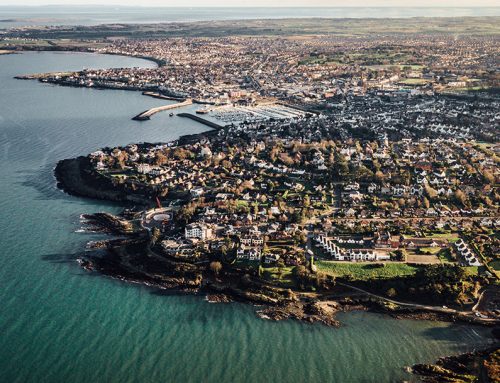After a week of challenging questions and differing views it struck me that sometimes labels can confuse people more than anything else. In a question session at the Blavatnik School of Government at the University of Oxford, we were asked what the difference is between ‘nationalism’ and ‘patriotism’. This seems a simple enough question until you start to break it down and find that the waters are not as clear as one would first expect. This question took me in an unexpected direction and made me look at the term ‘nationalism’ a little bit closer. In Northern Ireland we have a clear definition of a nationalist as a term solely linked with those who believe in Irish unity. But when looking deeper at nationalism I found that the labels unionism and loyalism (two labels often hard to differentiate between) are in fact the British notion of nationalism. Strangely, I found on trips to England that British nationalism doesn’t exist as strongly in mainland Britain as it does in NI. So, in truth we have two forms of nationalism both pulling in different directions in NI. One ideology is physical – connected to where it believes its nationalism belongs but not connected directly by constitution. The other ideology is connected to its nationalism by constitution but not connected physically. This leads to constant instability and while the two hard-line nationalistic views remain at the forefront, proper peace and stability will be hard to find. With all that within the context, we must either accept that this is the way it is and wait it out until one form of nationalism prevails completely over the other. This normally comes with a greater instability to peace. Does a new united Ireland need instability to peace? Does a Northern Ireland that remains in the union need another 100 years of instability? Or do we need to find a common ground that is ultimately already at our fingertips? The Good Friday/Belfast Agreement lays claim to three strands, two of which we have covered in Irish and British identities. However, the third identity – Northern Irishness – might just be the common ground we need to focus on that could in the longer term provide the outcomes that Irish nationalists and British nationalists want. A prosperous NI is not something London would want to lose, and the people of the Republic of Ireland would be more welcoming to the idea of unity if they felt they were getting a better addition to their country rather than a headache as many see NI now.
That takes me back to the title NI Patriots.
A patriot in my view is someone that is proud of the area they live in. That could be your local street, town, or county, and proud of achievements they or their family and friends attain. Being proud of your child at sports day or their school accomplishments, being proud of your first job or first house, proud because your friend got that dream job or even proud when a local sports personality or team outperforms others on a global stage. All of this happens within NI, the place that we all live. It doesn’t matter what label the nationalist leaders give this place either, be it “the North”, “the 6 counties”, or “Northern Ireland”. They do that to divide us at times. But what we can all support is improving NI and being proud of where we live and the achievements that matter to us and our families. If we all become NI patriots, we can all live a better life and hopefully the nationalistic ways of division and instability will then calm enough to see prosperity in society and allow us to grow beyond what we currently see.
Brian Donaldson



